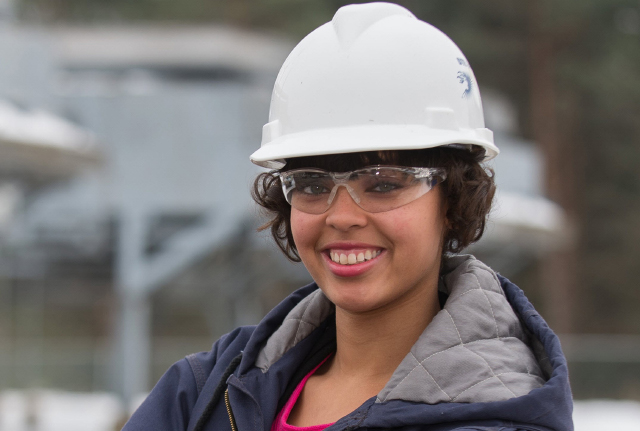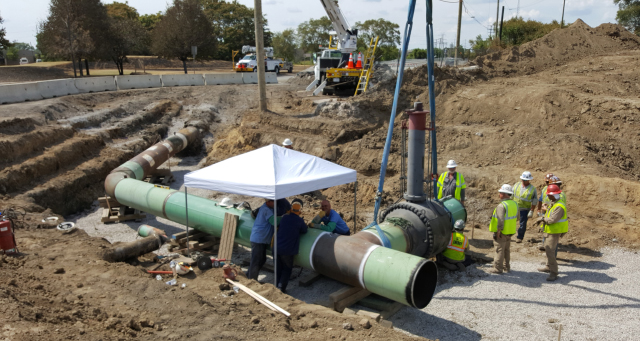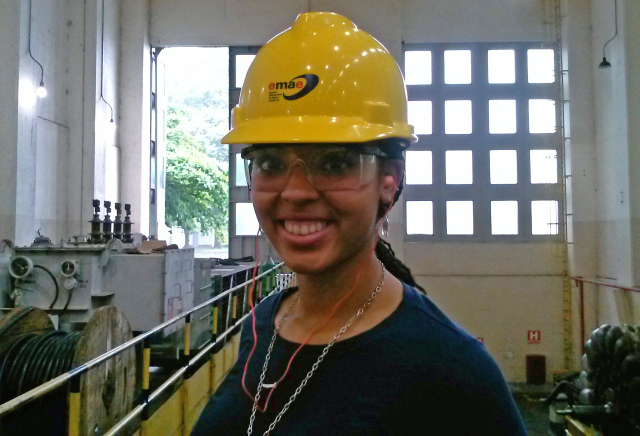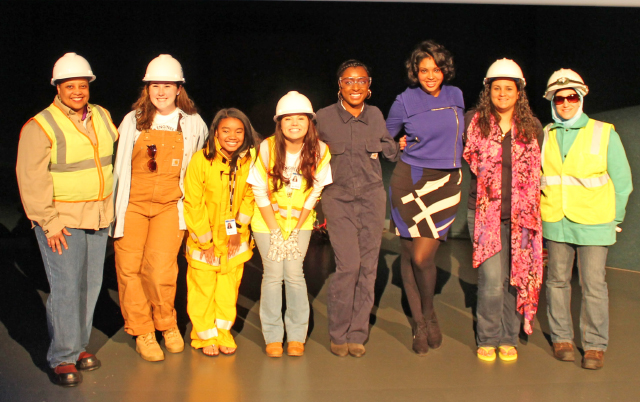Passion for problem-solving fuels alumna’s energy sector career
The click-click-click of a stove’s gas burner heralds a controlled burst of flame that, for many, means dinner will soon be on the table. The seemingly simple process is so familiar it is easy to take for granted.
But for alumna Kayla Shelton, a construction design and planning supervisor at DTE Energy, the path that gas takes from a storage facility to your kitchen is anything but simple. Shelton, S.B. ’13, a mechanical engineering concentrator at the Harvard John A. Paulson School of Engineering and Applied Sciences (SEAS), oversees design and construction of natural gas lines that serve DTE’s 1.3 million customers in southeastern Michigan.

“The complexity of the jobs can range from being very simple, cut-and-dry connections, to involving 10 different groups just to get a job done,” she said. “I definitely end up doing a lot of juggling because of all the different projects that come under my umbrella.”
For instance, in addition to planning simple natural gas hookups for new homes, and more complex transmission pipelines for commercial clients like Ford and General Motors, Shelton manages complex public works projects that take months to plan and execute.
One such project entails a statewide initiative to replace crumbling bridges along Interstate 94; natural gas pipelines run underneath all the highway bridges, and each must be rerouted before roadwork can begin. The complexities of such a project, from navigating state and federal permitting processes to drawing up the ideal new pipeline route, challenge Shelton to use the problem-solving skills and engineering expertise she developed at SEAS.

A DTE Energy crew reconstructs a gas pipeline. (Photo provided by Kayla Shelton.)
An early interest in math and science, and some gentle nudging from her mother and math teacher, inspired the Detroit native to pursue engineering.
“I was drawn to engineering because it is grounded in problem solving,” she said. “You see a problem in the world and engineering gives you the tools to go out and solve it. I always loved the idea of actively going out to see things and design things, and come together with other people to make solutions for everyday problems.”
Before she’d even taken her first engineering classes at Harvard, Shelton had secured an internship at a DTE Energy power plant for the summer after her freshman year. She was fascinated by the plant’s machinery—Shelton’s father had worked more than 30 years at Ford and the two shared an interest in complex, industrial sites.
Seeking broader engineering exposure, she joined a David Rockefeller Center for Latin American Studies program for students from Harvard and the University of Sao Paolo in Brazil, focused on environmental engineering. She traveled to Vicksburg, Miss., to learn how the Army Corps of Engineers handles Mississippi River floods and also spent time in Brazil studying that nation’s use of alternative energy sources, such as the millions of Brazilian cars that run solely on ethanol.

Shelton explores a hydropower plant in Brazil. (Photo provided by Kayla Shelton.)
While she was learning more about energy, Shelton was sharing her passion for science with others as a mentor with the Harvard Society of Black Scientists and Engineers. She led a science and cooking program for middle schoolers that taught students the principles of heat transfer as they baked molten chocolate cakes.
“My interest in mentorship stems from being a woman of color,” she said. “I noticed very quickly from my experiences at the power plant and in DTE operations that there aren’t a lot of people who look like me in this line of work. It is so important to reach out to kids at an early age to let them know that these are options for them.”
She also helped establish a Detroit chapter of Black Girls Code, participating in a panel discussion with the organization’s co-founders at the Detroit Public Schools International Academy, the only all-girls public school in the city. Now at DTE Energy full time, she continues to pay it forward by serving as a mentor to incoming classes of summer interns.
“In a way, mentorship is almost like fuel that helps me continue doing what I do,” she said. “To be able to motivate them helps to motivate me. These mentees are watching me as my career and I grow; having that indirect accountability helps me keep my eyes focused on the prize, which is to do the best I can no matter what.”

Shelton on stage with several aspiring engineers at a "Girls Engineering Exploration" program hosted by the Society of Women Engineers Chapter In Detroit. (Photo provided by Kayla Shelton.)
Shelton rose through the ranks quickly at DTE, spending three years in a pilot rotation program—first as supervisor of transmission and storage for gas, then at a distribution operation station, and finally in the gas distribution engineering group working on smaller pipelines in urban environments.
She enjoyed seeing how the many facets of gas and energy production intersect, and relies on those experiences daily as she juggles widely varied projects in her current role. Though Shelton’s work stretches across hundreds of miles of pipelines, she draws motivation from each individual she is able to serve.
“It is so rewarding when we are able to solve a person’s problems,” she said. “We touch so many parts of the company and so many customers, far and wide. But just to be able to give heat to someone who really needs it is the best part of the job.”